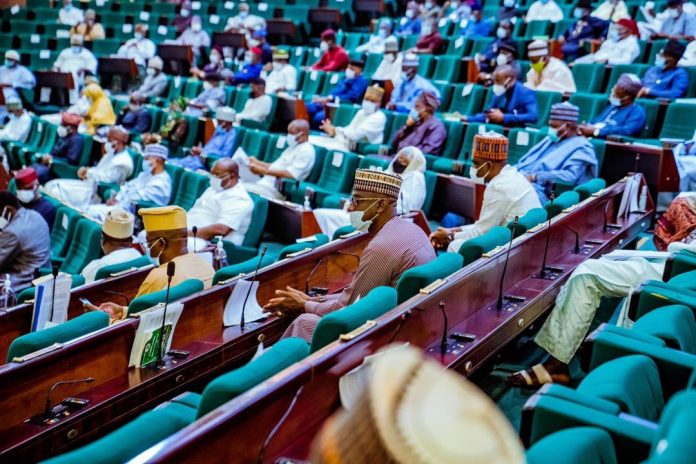The House of Representatives has retained the Value-Added Tax (VAT) rate at 7.5%, approved a new revenue-sharing formula based on consumption, and established the Nigeria Revenue Service (NRS) to replace the Federal Inland Revenue Service (FIRS).
During plenary, lawmakers considered the recommendations from the Finance Committee’s report on the Tax Reform Bills submitted by President Bola Tinubu. The amendments reflected concerns raised by various stakeholders, including the Nigerian Governors Forum, Trade Union Congress (TUC), Arewa Consultative Forum, and Supreme Council for Sharia in Nigeria (SCIN).
One of the most contentious proposals was the planned staggered increase of VAT to 15% by 2030, which the House rejected, opting to maintain the current 7.5% rate. Lawmakers also adjusted the revenue-sharing structure, reducing the federal government’s share from 15% to 10%, increasing allocations to states and the Federal Capital Territory (FCT) from 50% to 55%, while local governments retained their 35% share.
A major shift in the new tax framework is the introduction of a consumption-based derivation system. VAT revenue allocated to states and local governments will now be distributed based on a revised formula: 50% equally shared, 20% based on population, and 30% determined by consumption, meaning funds will be allocated to states where VAT is actually paid rather than where businesses are registered. While the change is expected to benefit high-consumption states, it has drawn opposition from northern stakeholders, who argue that the new structure disproportionately favors the South, particularly Lagos.
The House also removed several controversial provisions from the bill, including the proposed inheritance tax and the planned discontinuation of funding for key agencies such as the Tertiary Education Trust Fund (TETFund), National Information Technology Development Agency (NITDA), and the National Agency for Science and Engineering Infrastructure (NASENI) by 2030. Lawmakers also revised the taxation of Free Trade Zones, requiring that businesses within these zones must direct at least 75% of their trade to exports before qualifying for tax exemptions.
Additionally, the bill now restricts the president’s power to grant tax waivers, making National Assembly approval a requirement for any exemptions. Lawmakers also replaced the term “ecclesiastical” with “religious” in certain clauses, following concerns raised by stakeholders.
The House approved the repeal of the Federal Inland Revenue Service Act, replacing it with the Nigeria Revenue Service (NRS), which will oversee federal-level revenue collection but will no longer be responsible for individual taxpayers in states and the FCT. The new agency will have six executive directors representing each geopolitical zone, while every state and the FCT will have a representative on the board. The NRS will receive a 4% cost-of-collection rate, excluding royalties, subject to National Assembly approval. The bill also stipulates that the Secretary to the NRS Board must be a lawyer, chartered accountant, or chartered secretary at the level of Assistant Director or higher.
Further amendments to the tax framework include exemptions for certain agricultural businesses in their first five years of operation, covering sub-sectors such as livestock, forestry, dairy, animal feed, and cocoa processing. Lawmakers also approved a personal income tax exemption for members of the Nigerian Armed Forces.
The passage of the bills will lead to the repeal and amendment of multiple tax-related laws, including the Companies Income Tax Act (CITA) of 1979, the VAT Act of 1993, the Personal Income Tax Act (PITA) of 1993, and the Petroleum Profits Tax Act of 1959. Several other laws, including the Petroleum Industry Act of 2021 and the Nigeria Export Processing Zones Act, will also be amended.
The reforms are aimed at modernizing Nigeria’s tax system, improving revenue generation, and addressing concerns of economic fairness and transparency.



